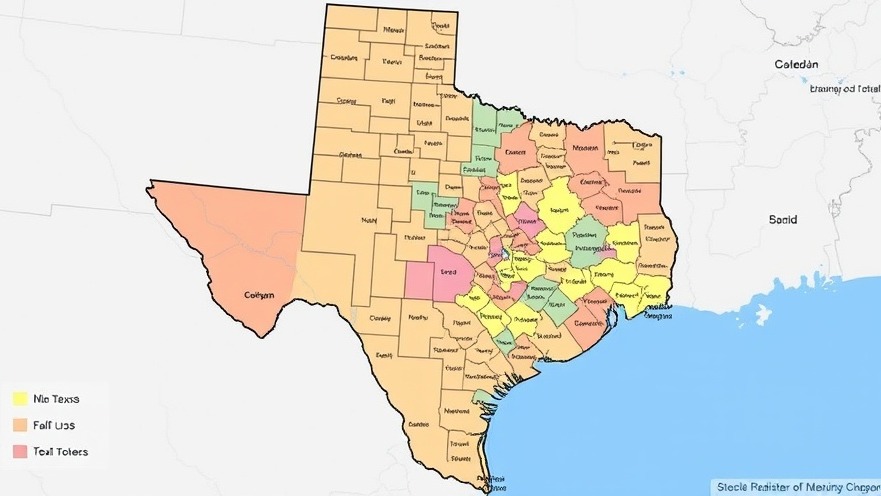
Texas Senate Takes Bold Steps in Redistricting Amid Controversy
The Texas Senate's recent approval of new congressional boundaries has ignited fierce debate, spotlighting the intricate dynamics of state politics. On August 12, 2025, the Senate voted overwhelmingly, 19-2, to redraw maps that aim to bolster Republican representation as the nation gears up for the pivotal 2026 elections. This controversial mid-decade redistricting process occurs against a backdrop of Democratic protest, highlighting the ongoing ideological conflicts within the state.
Democratic Retreat: A Stand Against What They Dub Corruption
With nine Democratic senators absent from the session, the party's leadership exuded their discontent by rallying against what they term a "corrupt process." The Democratic Caucus issued a statement condemning the practice, asserting, "This mid-decade redistricting isn’t about fair representation—it’s about politicians picking their voters instead of voters choosing their leaders." Their narrative paints the newly approved map as a calculated maneuver rather than a representation of Texas voters' interests.
The Continuous Battle Over Quorum in the Texas House
The absence of Democratic lawmakers extends beyond the Senate; House Democrats have fled the state to halt proceedings in protest. This tactic, reminiscent of past quorum breaks, has paralyzed the House and prevented members from discussing the redistricting plans adequately. GOP leaders, including Lt. Gov. Dan Patrick, have openly addressed the situation, threatened adjournment, and hinted at a potential second special session to push through the necessary legislative agenda.
Understanding the Implications: What This Means for Texas Politics
The Texas redistricting saga is emblematic of broader themes in U.S. politics, where political parties seek to remap constituencies to advantage their electoral chances. As Republicans push back against complaints of gerrymandering, they align their efforts with directives from former President Donald Trump's administration, who has urged state lawmakers to take firm action to secure more GOP seats. This political maneuvering raises questions about voter representation and the ethical implications of redistricting practices.
A Look Ahead: Future Predictions for Texas Redistricting
As Democrats in places like California and New York have threatened their own retaliatory redistricting efforts, the ramifications of Texas's decisions could resonate far beyond state lines. Observers predict ongoing battles in legislatures across the country as both parties scramble to redraw districts strategically. Future elections may thus be shaped materially by these mid-decade adjustments, impacting everything from local representation to national political landscapes.
Engaging with the Implications: What Can Texas Residents Do?
This unfolding crisis over redistricting highlights the need for Texas residents to stay informed and involved in their local political processes. Engaging with advocacy groups, attending town hall meetings, and making their voices heard through voting are vital ways to influence the future direction of state policy. As these maps could dictate representation for years ahead, understanding the stakes is essential for every Texan.
Conclusion: What's Next for Texas Legislators and Residents?
As the battle over the new congressional lines heats up, Texans should pay close attention to how these developments might affect their communities. The stakes are high and carry implications not only for political representation but also for essential local issues like education, healthcare, and immigration policy. With continued protests and potential civil actions looming, the state's politics could see more turbulence before the dust settles.
To remain engaged and informed, Texas residents should follow developments closely, advocate for their opinions, and participate actively in upcoming elections. Your voice matters in shaping the future of Texas politics.
 Add Element
Add Element  Add Row
Add Row 



Write A Comment